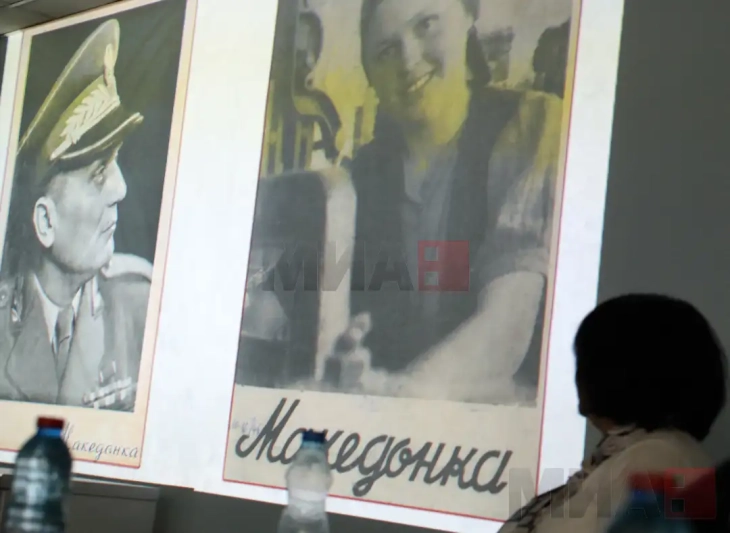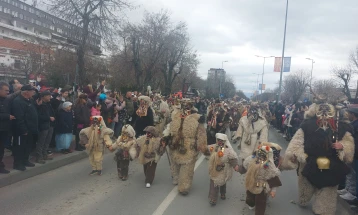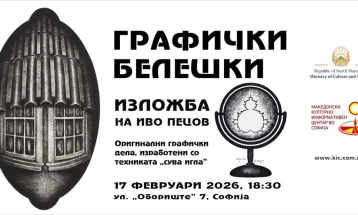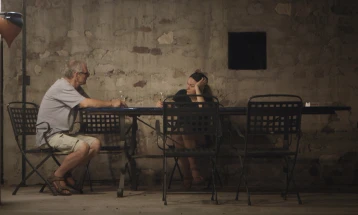Digital exhibit highlights 'Macedonian Woman,' country's first women's newspaper
- A digital exhibition on the Women's Antifascist Front of Macedonia's newspaper "Macedonian Woman," the first women's periodical published in the Socialist Republic of Macedonia, opened Friday at St. Clement of Ohrid National and University Library to mark International Women's Day.
- Post By Magdalena Reed
- 14:15, 8 March, 2024

Skopje, 8 March 2024 (MIA) — A digital exhibition on the Women's Antifascist Front of Macedonia's newspaper "Macedonian Woman," the first women's periodical published in the Socialist Republic of Macedonia, opened Friday at St. Clement of Ohrid National and University Library to mark International Women's Day.
Titled "Women in Rare Periodicals," the exhibit was curated by Marina Mijakovska and Milica Ivanovska from the archives of the National and University Library.
Mijakovska and Ivanovska wanted to highlight the newspaper's great cultural, historical and literary significance in providing women partisans space to publish opinions and manifestos, both on the resistance to fascism and on their fight for emancipation and women's rights.
The first editor of the paper was Veselinka Malinska and many women published their literary works in the newspaper. The exhibit, Mijakovska said, was also aimed at drawing attention to these unjustly forgotten female authors.
"They are literature's hidden subjects," Mijakovska said. "The first generation of Macedonian writers, including Aco Shopov, Blazhe Koneski and Venko Markovski, published their first works here, but history has either dismissed or forgotten the women authors who published alongside the men. Our goal was to rediscover them, because they were there."

The first issue of "Macedonian Woman" was published on Nov. 7, 1944. The paper was published periodically until its demise in 1952 due to the closing of the Women's Antifascist Front of Macedonia.
Over those eight years, 83 issues were printed. The first issues are kept in the National and University Library's "Rare Periodicals" collection, which is currently being digitized. All of the 1944, 1945 and 1946 issues have been digitized so far, Mijakovska said.
She added that the first issues of the newspaper showed female partisans equal to men in the anti-fascist war. After the war, the topics covered by the paper changed, focusing on daily life, housekeeping and fashion.

"The newspaper was important not only for women's fight for liberation but also for the fight for their rights – until, in 1945, Macedonian women succeeded in gaining equality and their right to vote," Mijakovska said.
She said the paper had also followed the development of the modern Macedonian woman and her contribution to society. "From this wonderful library resource, we also find out that Women's Antifascist Front of Macedonia members built libraries, too, through collecting donations, which they used for buying books. That is impressive information," Mijakovska said.
The event ended with a poetry reading by several contemporary Macedonian women writers. mr/







